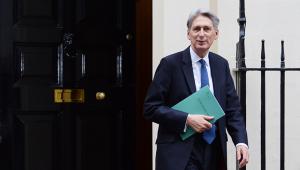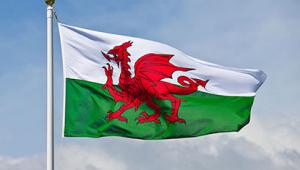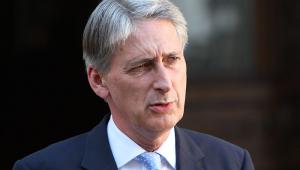This will come as a result of so-called Barnett Formula consequentials that allocate Scotland a share of UK spending changes.
Hammond also told the Commons that Stirling is to begin discussion of a city deal, meaning that all six Scottish cities will now take on City Deal status.
Holyrood finance secretary Derek Mackay will now be under pressure to spell out details of the Scottish Government’s plans for putting the extra capital to use in three weeks’ time when he unveils the Scottish Budget. This has been delayed by the later date of the Autumn Statement for the whole of the UK.
Stewart Hosie, UK economy spokesman for the Scottish National Party, said the Scottish Government had a good record in having “shovel-ready” infrastructure projects to hand, to quickly take up any additional funding opportunities. The extra money, he said, was welcome, but not of massive consequence.
“Since this [UK] government came into power, we have had a 10% cut in revenue spending and a 16% cut in capital spending, so however welcome £800m may be it doesn’t reverse the damage that has been done,” Hosie said.
He also welcomed the news on city deals, but added: “All the credit should go to the local authorities and others who have put this together.”
Ruth Davidson, the Scottish Conservative leader, called on Scottish ministers to use the capital spending rise “right now” to improve infrastructure. She said it was “great news” that all Scotland’s cities were placed to agree city deals and urged ministers to focus on “people’s priorities” in next month’s Scottish Budget.
“Since the Brexit vote, Nicola Sturgeon has spent all her time thrashing around trying to manufacture an argument for independence, while dithering over the day job,” Davidson said. “We face enough headwinds in future without having to worry about the extra uncertainty posed by her unwanted independence referendum campaign.”
Labour’s Scottish leader, Kezia Dugdale, said the Autumn Statement added up to “"more of the same old Tory mantra – cut, cut and cut again".
The Scottish Greens’ co-convener, Patrick Harvie, urged Scottish Ministers to use the capital boost to invest in energy-efficient homes and quality childcare, and called on Mackay to offset Brexit’s negative impact with an anti-poverty package to increase devolved benefits and public sector pay.
“The Tories' cuts in oil taxes will harm efforts to limit climate change,” Harvie added. “The Scottish Government must take a different approach and instead invest in day-to-day public transport, low carbon infrastructure and oil and gas decommissioning."
Willie Rennie, leader of the Scottish Liberal Democrats, said the statement showed how Brexit uncertainties had put public services at risk: “Between the government’s hapless handling of Brexit, and Labour‘s lack of opposition, the country can see that this isn’t good enough,” he said.
Scottish TUC general secretary Grahame Smith accused the chancellor of ignoring the adverse effect of low oil prices on Scotland’s offshore industries, and regretted the absence from the statement of a North Sea Public Investment Fund to improve sector infrastructure and encourage exploration.
Meanwhile, the first contract under Scotland’s newly devolved employment support powers will be formally announced tomorrow. A one-year contract to deliver the £14m Work First Scotland programme, providing employment support for 3,300 disabled people, will be shared by three bodies, the Shaw Trust, Momentum Scotland and Remploy.





















